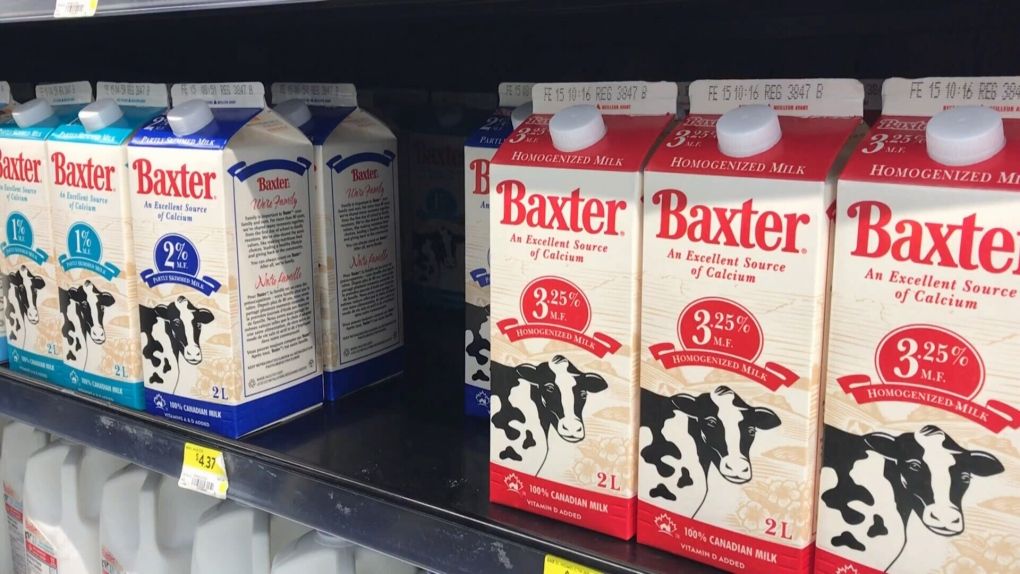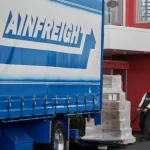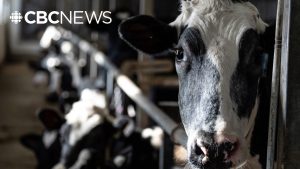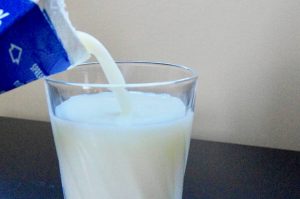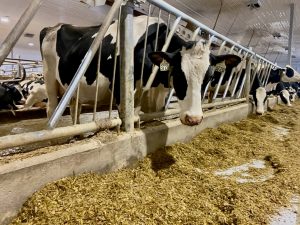
“When a fellow farmer dumps 30,000 litres then that’s going to catch everyone’s attention,” John Van Dyk told CTV News Thursday. “It’s time to end this practice. There’s no need to have this practice.”
Jerry Huigen posted a video on TikTok from his Dunville, Ont. farm which was reposted to Twitter.
“They make us dump it,” Huigen said in the video.
“As a little boy, we grew up on a dairy farm, came from Europe, work, work, work and here we are this is what’s happening,” as the video shows milk pouring out of a drain pipe.
“To see that happen is painful,” said Canadian food expert Sylvain Charlebois. “Especially right now. Everyone’s hurting at the grocery store.”
“There is no politician out there who’s going to support us on ‘oh yeah, it’s okay that you guys dump milk.’ No, it’s not,” said Van Dyk. “We can’t do this anymore.”
Since the video was circulated Van Dyk, a second generation dairy farmer, said he needed to do something.
“Why don’t we as an industry grab this issue by the horns and change things?” Van Dyk said.
PETITION: Ann and John Van Dyk, Ontario dairy farmers, have started a petition to end on-farm milk dumping in Canada. "Let's End the Dumping of Over-Quota Milk". Click here to sign the petition: https://t.co/ro2kDJAYcv
— The Food Professor (@FoodProfessor) February 7, 2023
“Let’s end the farmgate waste due to ‘over-quota’ milk,” the petition reads. “Supply management is the ideal system to prevent a dairy farmer from wasting thousands of litres of milk. With a strategy and some investments. Our sector can have a positive impact on the environment, generate more revenue growth and develop new markets for our great product.”
Van Dyk said otherwise, farmers are forced to make a tough decision like selling cows if their herd is producing too much milk.
Farmers don’t get paid for extra milk they ship that is above their quota, Van Dyk said.
“And then you have to pay 20 cents a litre for shipping that ‘over quota’ milk,” he explained.
Van Dyk believes one idea could be to create a milk ‘pool’ to be make up if any farmers don’t send as much milk as their quota allows.
Or, that milk could be donated to food banks or processed in other ways.
Charlebois says one option would be to use it for domestic infant formula production.
“The Chinese actually built a plant in Kingston, Ontario to process our own milk, dehydrate (it) and manufacture baby formula. All of it is shipped to China. We could do that ourselves!” Charlebois stated.
In a written statement to CTV News, Murray Sherk, board chair for the Dairy Farmers of Ontario (DFO) said, “Navigating peaks and valleys of consumer demand is an important part of our Canadian dairy system and is carried out through responsible farm management.”
Sherk also noted, “every dairy farm across Canada is managed by a licenced producer who determines the best way to produce high quality milk within his or her allocated quota and in accordance with all milk quality and animal welfare regulations.”
According to the DFO, public health regulations dictate unpasteurized milk is not safe for human consumption.
However, the DFO does have the Ontario Milk Program which last year alone saw farmers donate more than 1.3 million litres of milk to Ontario food banks.
